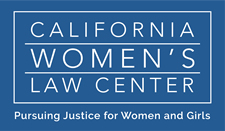-
- Since Title IX passed in 1972, female athletic participation has exploded by 1,063%.
- More than 90% of women in C-suite executive level positions say they played sports.
- Girls who participate in sports are more likely to graduate from high school and college, and are less likely to use drugs or experience an unplanned pregnancy.
- Parenting and education are not incompatible. While 70% of teens who give birth drop out of high school, most would like to continue their education. Making it easier for moms to express milk at school can help.
- Students are protected from being penalized for absences due to breastfeeding.
- Laws in California strengthen moms’ abilities to breastfeed and pump at work and school, protecting parents beyond federal law requirements.
- Between 20-25% of women will experience a completed and/or attempted rape during their college career; more than half of them tell no one of their victimization.
- Women are at the highest risk for sexual assault during the initial months of their first and second semesters in college.
- Approximately one in five female high school students report being physically or sexually abused by a dating partner.
Title IX Gender Discrimination
Passed in 1972, Title IX of the Education Amendment Act applies to all educational institutions that receive federal funding. It states: No person in the United States shall, on the basis of sex, be excluded from participation in, be denied the benefits of, or be subjected to discrimination under any education program or activity receiving Federal financial assistance.
Gender discrimination comes in many forms, and one way we combat inequity is by enforcing Title IX, the 1972 law that prohibits educational institutions from discriminating based on sex. CWLC is a leading expert in Title IX enforcement, and we focus on three ways this law protects the rights of girls and women: athletic opportunities, the treatment of pregnant and parenting students and employees, and campus sexual assault and harassment.
Title IX: ATHLETIC OPPORTUNITIES (see related resources)

Title IX is most known for ensuring that girls have access to athletic opportunities. Despite this legal guarantee, many female students still do not have equal access to sports. CWLC serves as an expert resource for girls, parents, coaches, school officials, and policymakers who want to ensure girls get their fair chance to play. We provide technical assistance to support compliance efforts and when necessary, we litigate. We have successfully litigated several Title IX athletics claims, including Ollier v. Sweetwater Union High School District. CWLC is one of a few organizations focused on equity at the K-12 level, and we train legal professionals and community leaders– including local Parks and Recreations Departments– on effectively implementing Title IX.
CONSIDER THIS
Title IX: PREGNANT & PARENTING STUDENTS (see related resources)

Title IX protects pregnant and parenting students from discrimination. However, many young women who become pregnant are routinely stigmatized, marginalized, and coerced into dropping out of class and attending substandard schools. CWLC trains school leaders and legal advocates throughout California on the educational rights of pregnant and parenting students, including their right to stay in school, participate in all extra-curricular activities, and have access to adequate breastfeeding accommodations. We support pregnant and parenting students by working directly with school administrators on the implementation of reasonable accommodations, advocating for state policies that protect their civil rights, and litigating when necessary. Working with our community partners, CWLC launched a multi-year initiative called the ABC’s of Breastfeeding, which grades California school districts, holding them accountable, and supporting their compliance efforts.
CONSIDER THIS
Title IX: CAMPUS SEXUAL ASSAULT & HARASSMENT (see related resources)

Title IX states that all students should have access to a fair and equal education but sexual violence has become an epidemic on college campuses, depriving female students of this right. Too often, schools ignore this pervasive injustice and young women are unable to learn in a safe environment. There is a small but growing body of case law that affirms schools’ responsibility to address this issue under Title IX. CWLC delivers trainings to students, educators, and attorneys across California to help them better understand Title IX’s role in combating campus sexual assault and harassment. CWLC also addresses violence against women that happens off-campus and to non-students, particularly intimate partner violence.
CONSIDER THIS
